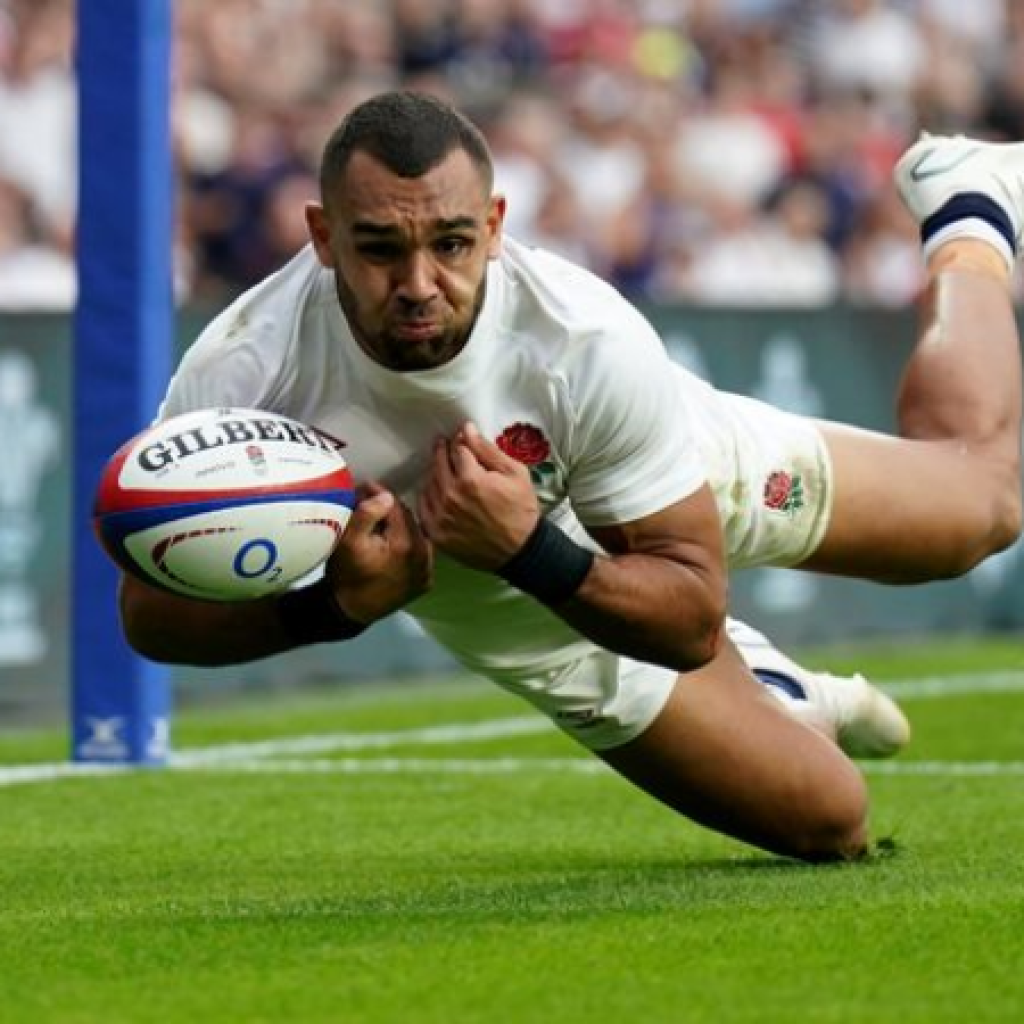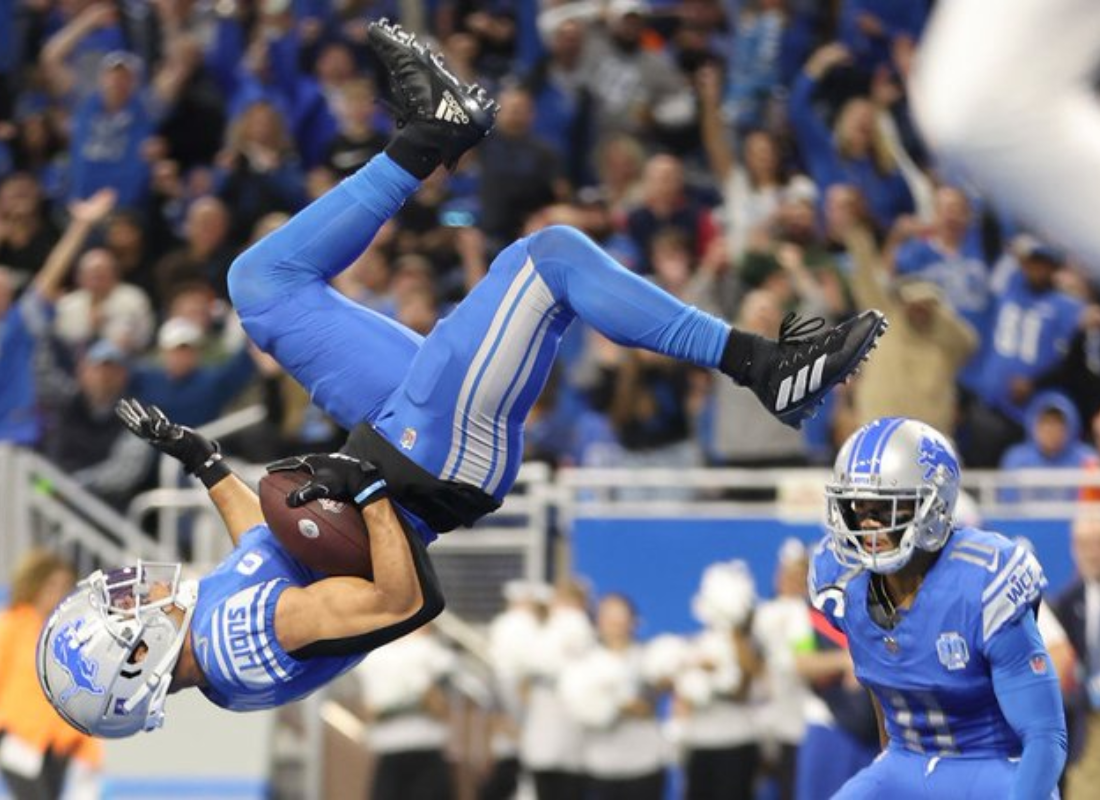In their recent Rugby World Cup warm-up against Wales, England narrowly secured a victory despite being on the verge of defeat. However, the match highlighted more drawbacks than benefits for the team.
Even with their win against Wales in the World Cup warm-up game at Twickenham on Saturday, Steve Borthwick encountered a combination of difficulties. Captain Owen Farrell is dealing with a possible suspension, scrum-half Jack van Poortvliet got injured, the scrum displayed lackluster performance, and England’s offensive attempts once again fell below expectations.
England managed to secure a 19-17 win against Wales, with George Ford’s late penalty lifting them from a 17-9 deficit. This triumph was achieved despite three players receiving sin-bins and Owen Farrell, the captain, being shown a red card. Farrell is scheduled to attend an independent disciplinary hearing on Tuesday.
Owen Farrell Red Card 🟥
— Darren (@SaffasRugby) August 12, 2023
Upgraded from Yellow Card after bunker review system. #ENGvWAL pic.twitter.com/94pD0o93at
Is the World Cup devoid of the captain and primary number 10, Farrell?
Since Borthwick assumed the position as England’s leader, he has consistently favored Farrell as a central figure. This preference is apparent in both the fly-half role and his captaincy.
Nevertheless, the 31-year-old’s red card in the Twickenham match against Wales, stemming from his recurrent shoulder-led high tackle, which incidentally struck back-rower Taine Basham in the face, will carry repercussions. There’s a high likelihood that he will miss a portion of England’s Rugby World Cup pool stage matches in France.
With critical Pool D matches against Argentina and Japan as their initial encounters, the situation is notably grim for Borthwick’s team. Regrettably, Farrell has a history in this regard, which casts doubt on any potential leniency regarding the impending penalty. Indeed, this incident marks Farrell’s fourth suspension due to a high tackle.
Back in 2016, he received a two-game suspension for an illicit tackle on Dan Robson during a Champions Cup semi-final. Similarly, in 2020, he faced a five-game ban for a high tackle on Charlie Atkinson – a punishment later reduced from 10 weeks owing to extenuating off-field circumstances.
In January of this year, he was handed a four-game suspension for making contact with Gloucester’s Jack Clement’s head using his shoulder. Furthermore, in November 2018, he avoided a citation after delivering a shoulder charge to South Africa’s Andre Esterhuizen during an England match. The incident warranted a yellow card instead of a red. Farrell escaped being sin-binned for this action, aiding England in securing a narrow 12-11 victory.
It’s challenging to envision a player whom Borthwick would have preferred to retain more than his on-field leader, Farrell.
A pressing worry for Borthwick stemming from this match was the notable ankle injury suffered by scrum-half Jack van Poortvliet during the initial half. The 22-year-old has been the preferred scrum-half for England under the guidance of the head coach, commencing in all five Six Nations Tests earlier this year.
However, his injury on Saturday appeared to be more severe than a mere ankle twist. He remained grounded for an extended period, underwent treatment with a downcast demeanor, and had to be assisted off the field by two medical staff members, with his injured leg unable to bear any weight.
Considering England’s World Cup opener is just four weeks away, the timing of Van Poortvliet’s injury is unfortunate and challenging for both him and the coaching team. In relation to Van Poortvliet’s status, Borthwick stated post-match, “He will undergo a scan. Rather than rushing to conclusions, we’ll await the findings.”
This remark conveys more hope than certainty. Could Borthwick potentially lose his starting half-back duo for England in the World Cup match against Argentina on the same August evening? It appears to be a distinct possibility.
England confronted a Wales squad that had recently bested them in Cardiff, a win that followed a period where Wales had been among the least successful teams in Test rugby.
During the Six Nations, they managed to secure a fifth-place finish, continuing from their previous fifth-place outcome in the 2022 Six Nations, and also enduring a first-ever home loss to Italy. In the autumn, they conceded a whopping 55 points against the All Blacks on their home ground and even suffered a defeat at home against Georgia.
With a number of experienced players departing, their confidence had reached a nadir. Considering all these aspects, England came remarkably close to losing to Wales two weeks consecutively.
In the Saturday match, the scrum stood out as a prominent area of concern, reminiscent of the 2019 World Cup final where England’s struggles against South Africa in the same aspect led to a significant defeat. Opposite an unheralded Welsh pack, England conceded four penalties and an extra free-kick during scrums, resulting in the sin-binning of Ellis Genge due to scrum-related issues.
Genge’s departure was one of four cards handed out to England – an untenable situation as they approach a World Cup campaign. Winger Henry Arundell received a sin-bin for halting a quick-tap, while Freddie Steward was shown a yellow card for tackling Josh Adams in mid-air, leading to a penalty try. Steward was fortunate to avoid a red card and a permanent expulsion from the match, unlike Farrell.
Just like in the preceding week in Cardiff, England struggled to synchronize their offensive efforts throughout the entire 80 minutes. Their solitary try originated from a maul and was achieved while being in a somewhat comical situation of having only 12 players on the field.
Undoubtedly, the team should be acknowledged for managing to secure an unlikely victory from a 17-6 disadvantage, despite the considerable number of yellow and red cards they were issued. Nonetheless, this was a match they were heavily expected to win before the start, particularly considering that Wales had introduced 15 changes to their starting lineup.
Errors in handling and knock-ons were widespread, leading to England relinquishing possession 10 times during the game, in addition to the 12 penalties they yielded.

Should they replicate this performance in Dublin next weekend, their chances of clinching a victory are exceedingly slim. While their triumph on Saturday brought delight to the fans, it’s plausible to contend that it stirred more worries and uncertainties than positives.
ALSO READ:
- Springbok star Libbok turns down French move
- New Zealand Triumphs in First T20I Against Pakistan
- Elgar’s Carefree Batting: Manjrekar’s Observation












